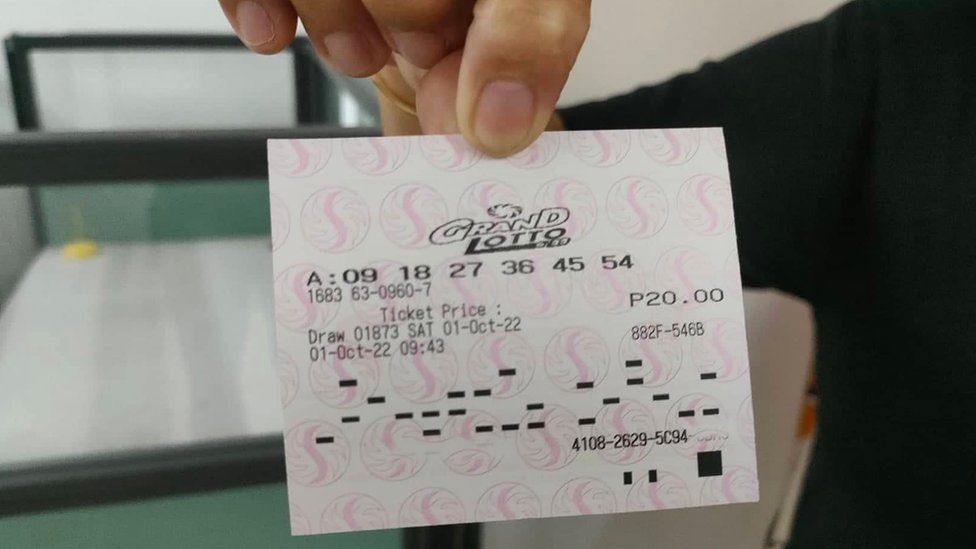A lottery in the Philippines that saw 433 people strike the jackpot has drawn surprise and triggered scrutiny.
It was the highest number of people to have ever won the Grand Lotto’s top prize, according to local media.
The winning combination for last weekend’s 236m peso ($4m; £3.5m) jackpot was a series of numbers which were all divisible by nine.
Philippines senate minority leader Koko Pimentel has called for an inquiry into the “suspicious” results.
“I don’t know a name for this number since it is so large. The number of molecules in the known universe has 80 zeros,” said Guido David, a mathematics professor at the University of the Philippines.
Participants in the Grand Lotto select six numbers from 1 to 55. To win the jackpot all six of a player’s numbers have to match those drawn by the lottery’s operator.
“These lotto games are authorised by the Republic of the Philippines. Therefore, we need to maintain and protect the integrity of these gambling games,” Mr Pimentel said as he called for an investigation into the lottery’s unusual outcome.
On Sunday, Melquiades Robles, general manager of the Philippine Charity Sweepstakes Office (PCSO), said there were no irregularities and highlighted that people in the Philippines tended to bet on number sequences.
“Many have held on to their numbers. It’s not only good to be loyal to your wives and husbands, it’s also good to be loyal to your numbers,” Mr Robles told a news conference.

The PCSO also shared photographs and videos of people collecting their prize money at its office in Mandaluyong city, close to the capital Manila.
“I’ve been betting on pattern 9, pattern 8, pattern 7 and pattern 6 for many years and I’m thankful I just won,” one winner said.
Terence Tao, a maths professor from University of California, Los Angeles told the BBC that a pattern like this being a winning series of numbers is rare “for any single lottery.”
“But there are hundreds of lotteries every day around the world, and statistically it would not be surprising that every few decades, one of these lotteries would exhibit an unusual pattern,” he said.
“It’s similar to how in any given hand of poker it would be unlikely to draw a straight flush, but if one looks at hundreds of thousands of hands at once then it actually becomes quite likely that a straight flush would be drawn,” he added.